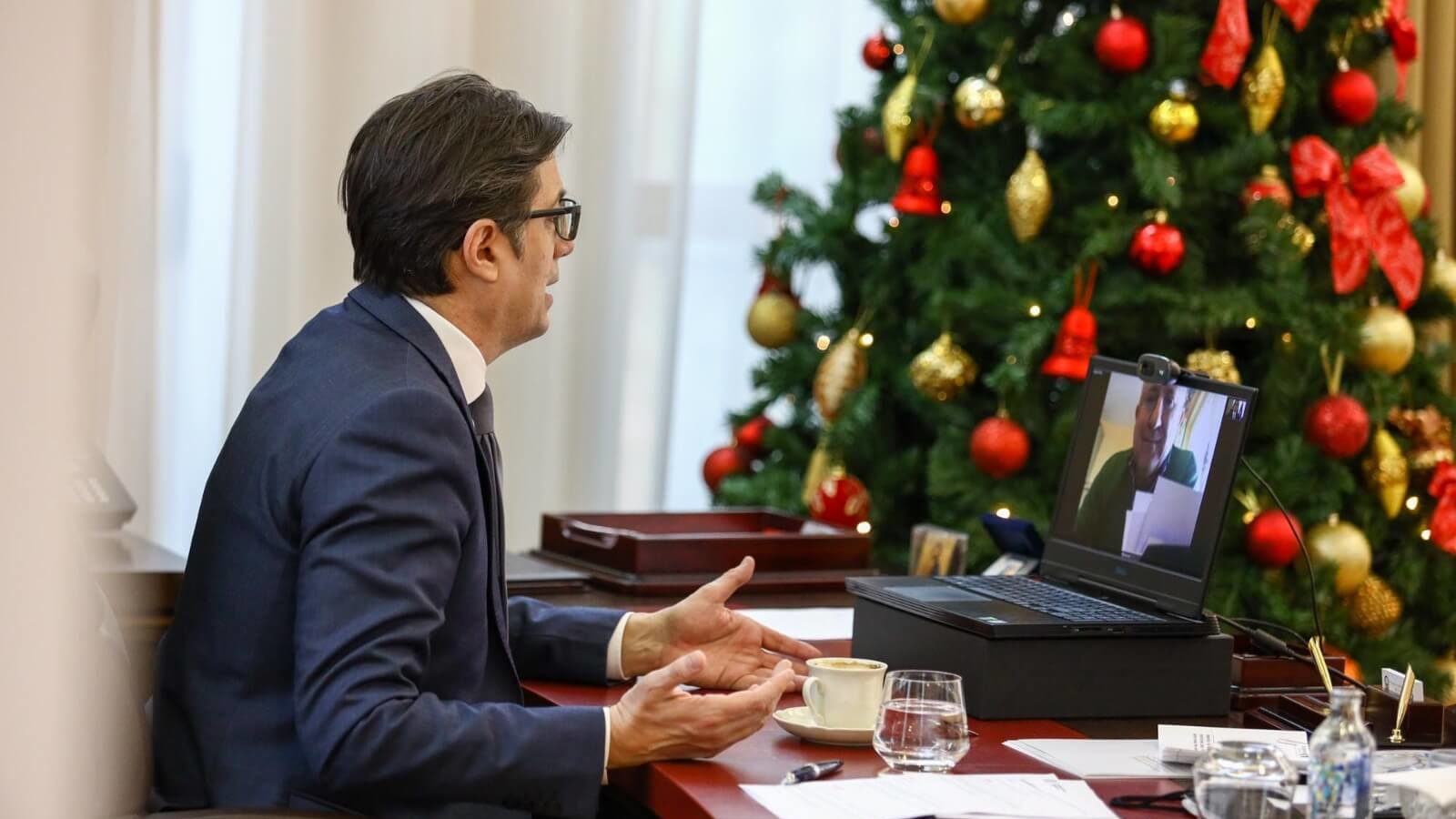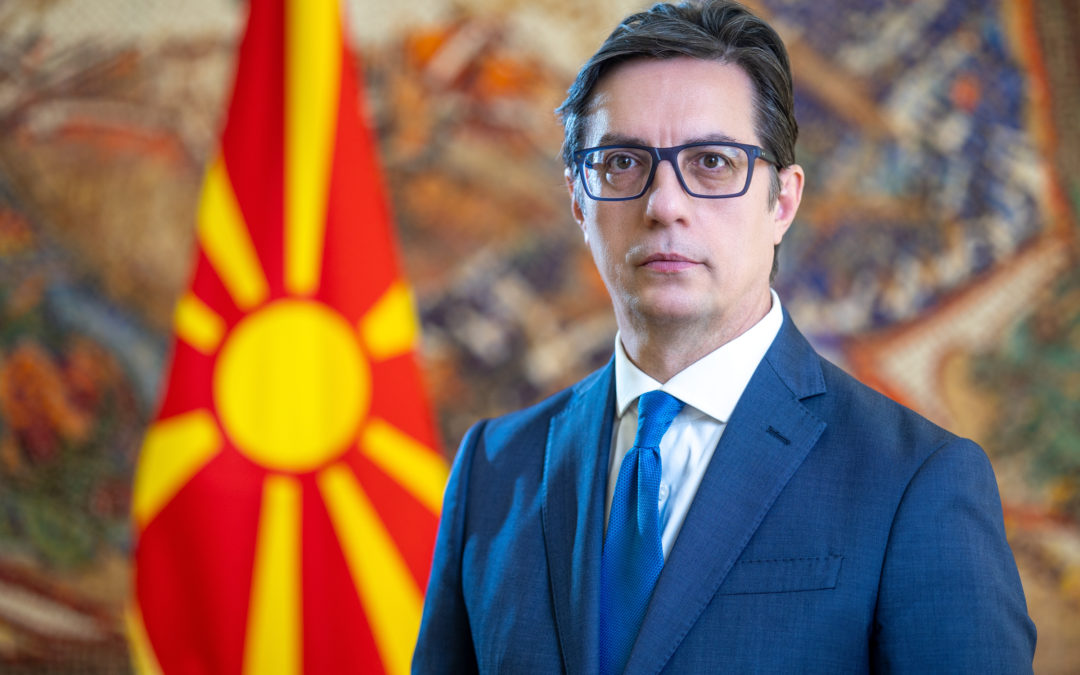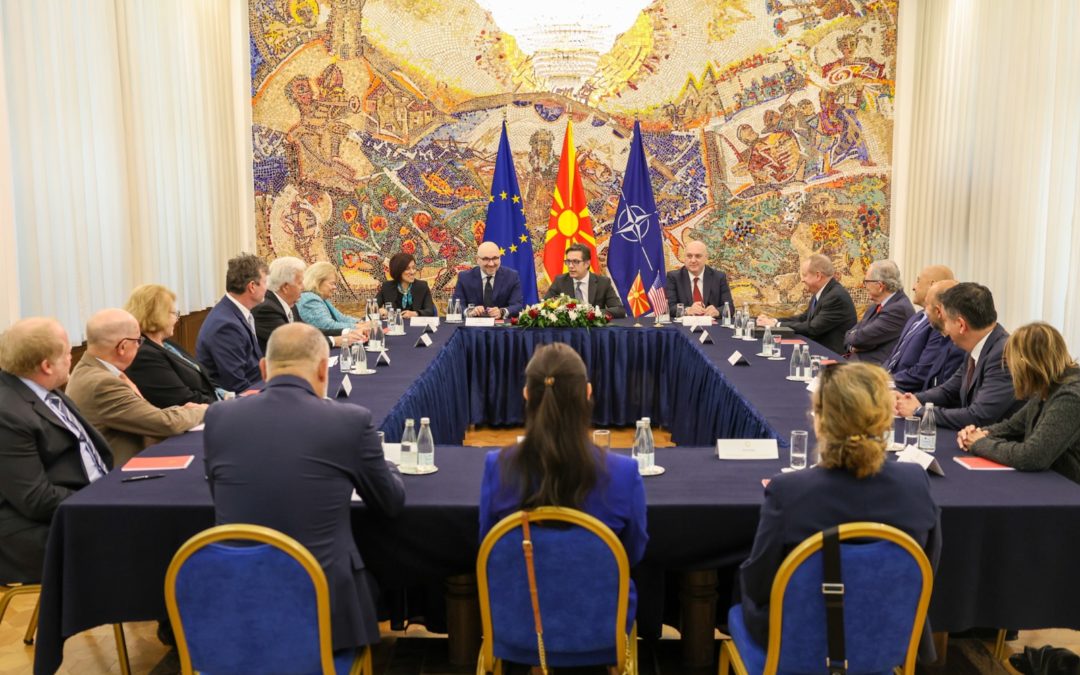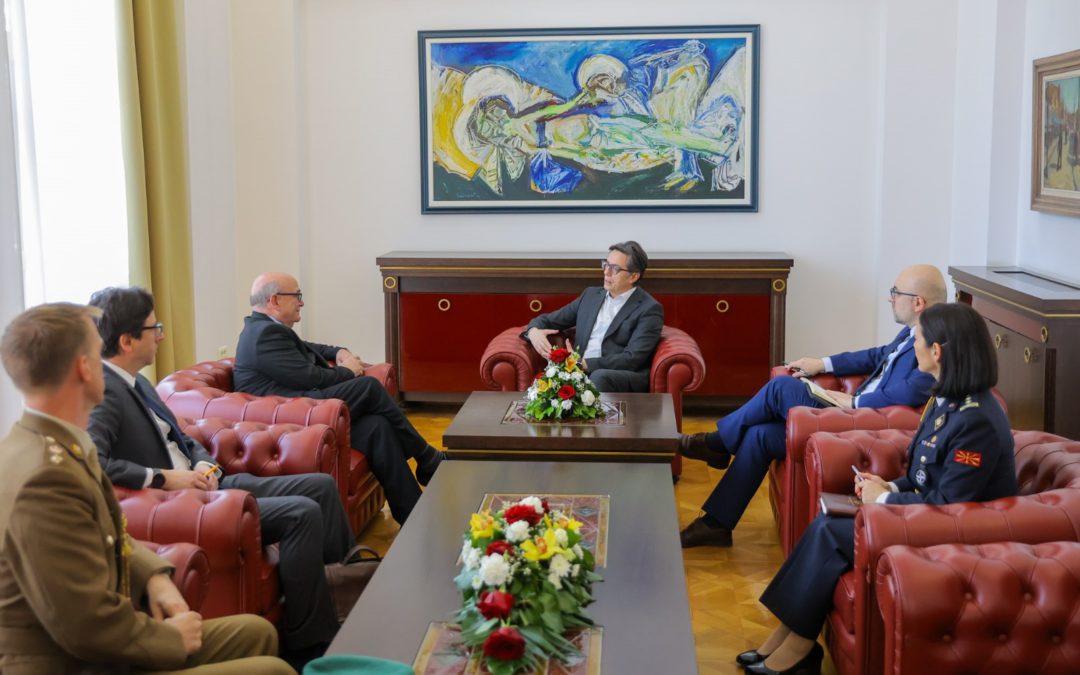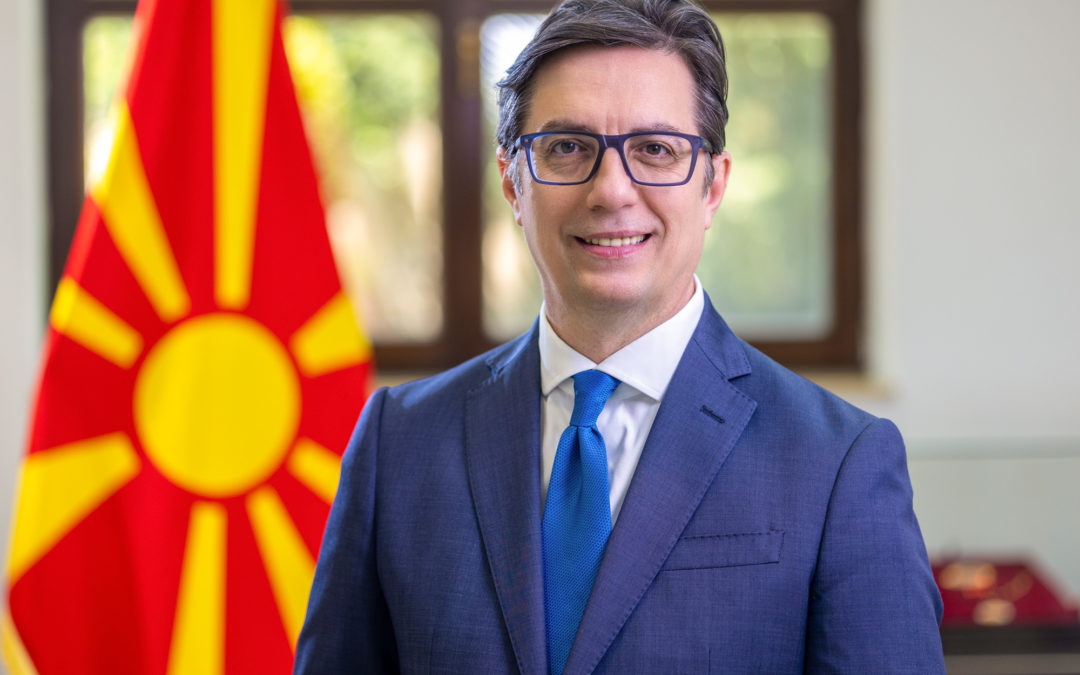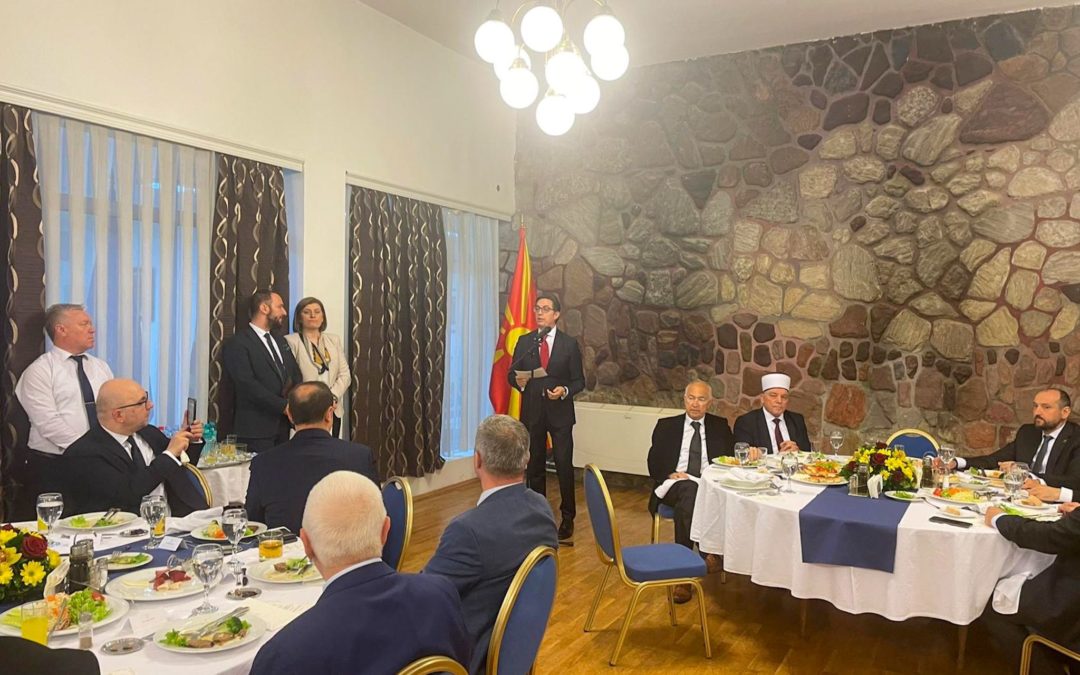In his first interview with Russian media, President Stevo Pendarovski spoke with Kommersant Balkan correspondent, Gennady Sysoev.
In the interview, the President discussed the relations of the Republic of North Macedonia with Russia, the European perspectives of the country after the Bulgarian veto, the benefits of NATO membership, expectations from the new US administration regarding our country and the entire Western Balkans region.
Question: After winning the presidential elections last year, you announced that now the path of North Macedonia to the EU and NATO is guaranteed. However, the EU recently again refused to start accession negotiations with your country. Is the EU integration postponed?
President Pendarovski: Obviously it is. Because of the position of Bulgaria, which affects the identity of the Macedonians and disputes the Macedonian language (Sofia does not recognize the existence of the Macedonians as a nation before 1944 and considers the Macedonian language to be a dialect of the Bulgarian – remark of the Newspaper). No other EU country supports this position, but the European Union applies the consensus rule. Let’s see in the first months of next year whether anything will change in Bulgaria’s approach. For, in our turn, the room for maneuver has been exhausted, we have made a lot of constructive proposals. There can be no negotiations that we are Macedonians who speak the Macedonian language.
Question: You also said in parliament the other day that the Macedonians will never give up their identity and their language…
President Pendarovski: Yes I did. And there is no difference between the government and the opposition on that. No one will say: maybe it’s worth considering whether we are Macedonians or not. The differences are only in the methods of achieving the goal. Our red lines are drawn: we are Macedonians and our language is Macedonian. No referendum is needed here.
Question: Why did Bulgaria decide to block you right now?
President Pendarovski: – We have been a candidate for the EU membership since 2005, but due to the dispute with Greece over the name of our country, we could not start accession negotiations. We have resolved the dispute with Greece. Now Bulgaria thinks something like this: if they are now allowed to enter the EU, there will be no more opportunity to raise controversial issues. Some Bulgarian politicians even say: it was necessary to block Macedonia’s accession to NATO in 2018. I suppose that then they were not allowed to do this because of the geostrategic interests of the Western forces, which wanted to fully form the southern wing of the Alliance. Concerning the EU, the approach is different.
Question: Is it not connected with the upcoming spring elections in Bulgaria?
President Pendarovski: I recently mentioned this, too. And the reaction of our Sofia friends immediately followed: they say, this is not so, no one raises these questions for the sake of rating. I have recently looked at the dynamics of the ratings of the leading Bulgarian parties. Over the past two months, they have doubled. Maybe something else influenced the ratings, but, in this period, the parties in Bulgaria have been talking very often about the Macedonian issue.
Question: North Macedonia officially became NATO’s 30th member in March. You have personally actively pursued this. Have your expectations been met? And what did the membership in the alliance give your country?
President Pendarovski: After the break-up of Yugoslavia, we faced security and territorial integrity problems. NATO was a synonym for us, a guarantor of both. Previously, international investors did not ask: does Macedonia have a future? Who would invest in a country if security is threatened? Now that we have become a member of this military-political structure, our image is completely different. Speaking about specific things, with NATO membership we began an active exchange of information, which is of mutual interest. In the past five to six years, about 140 of our citizens have fought in Syria and other countries of the Middle East. Some have died or gone missing, but many have returned. These are people of war and they can potentially commit terrorist acts in our country or in the region. We are a small country, and it is extremely important to receive the necessary intelligence information from Germany, France and other leading countries. A couple of months ago, thanks to the information received, we arrested three such people who were preparing a terrorist attack.
Question: But for the sake of NATO membership you had to change the name of the country. Do you agree with those who think that this is too high a price?
President Pendarovski: I do not agree. There are two aspects to changing the name of the country. The first is emotional, associated with the need to get used to the new name. It was not easy for me, too. But there is also a strategic aspect. There is a provision in the Agreement with Greece that we are Macedonians who speak Macedonian language. This provision has become part of our ID in the UN, and this is extremely important for us. As for history and geography, our country occupies 36-37% of the geographical Macedonia. Geographically, we are indeed North Macedonia.
Question: Has your accession to NATO led to deterioration of the relations with Russia, which has never concealed its rejection of the expansion of the Alliance?
President Pendarovski: I would not talk about deterioration of relations. Rather, we are talking about a decrease in the dynamics of political contacts. This must be corrected, including from our side. Last year, as part of the Paris Summit, I initiated a meeting with the Russian Foreign Minister, Sergei Lavrov, which was very constructive. Last year, after a five-year hiatus, the bilateral intergovernmental commission on trade and economic cooperation started working again. Not a single country of the former socialist block that joined NATO has escaped condemnation from Russia. Our people have decided on their strategic goals. Russia itself determines its goals. This must be taken for granted and left aside. This should not be an obstacle to cooperation in trade, economy, energy. North Macedonia’s intention is to improve bilateral relations with Moscow. Among the countries that have joined NATO, there are those that have excellent relations with Russia. Slovenia, for example.
Question: Yes, but unlike Slovenia, North Macedonia, like Montenegro, three years earlier, joined NATO during a period of tough confrontation between Russia and the West. Maybe this is the reason?
President Pendarovski: I start from the fact that if there is will on both sides, everything can be resolved. I guarantee that there is such political will on my part and on the part of Zoran Zayev’s government. I have no doubt that there is one in Moscow as well. Therefore, I guarantee that there will be no problems regardless of the fact that we joined NATO now as some countries did 15–20 years ago.
Question: I heard that you intended to come to Moscow when the 75th anniversary of the victory over fascism was celebrated, but it did not work out …
President Pendarovski: Yes, I officially confirmed the trip to the Russian Ambassador to Skopje. But the pandemic prevented me. This would have been an excellent occasion for representatives of all countries of the then anti-fascist coalition to gather and send a clear signal to the unfortunately rearing forces of historical revisionism. I would have travelled to Moscow, because anti-fascism is at the core of the Macedonian state. And to honor the memory of millions of Russians who died from the Nazi evil.
Question: You were one of the first world leaders to congratulate Joe Biden on the victory. Do you expect more active involvement of the new US administration in the Balkan affairs?
President Pendarovski: I think that the level of involvement of the Biden administration in the Balkan issues will increase, but the formal leadership in the region will remain with the EU.
Question: After the settlement of the dispute between Macedonia and Greece, other serious problems remain in the Balkans. Can the region stop being a zone of instability and conflict?
President Pendarovski: Unresolved issues in the region remain. Bosnia and Herzegovina faces serious challenges, the international status of Kosovo has not been determined, although I do not believe in new conflicts and wars in the Balkans. There are other problems as well. With the development of democracy, for example. Or massive emigration due to the weak economies. Moreover, without the support of international factors, not a single major problem in the region can be resolved.
Question: But international “players” see the situation in the region differently. Five years ago, the then US Secretary of State, John Kerry, said that some Balkan countries “are on the line of fire between Russia and the West”. Is this position relevant today?
President Pendarovski: I think it was not quite so then. It is about the confrontation of great forces. When the big ones fight, the little ones are better off to the side. In the end, it doesn’t matter who helps us. It is important to solve the problem. If you have a worthwhile idea – suggest it, I don’t mind. Even if it is an informal proposal.
Question: Returning to the beginning of our conversation, do you believe that the EU really wants to see the Balkan countries in its ranks?
President Pendarovski: The Europeans do not have a formed opinion that the Balkans should not be included in the EU. But there is an opinion that there can be no expansion until the deepening of interaction within the EU itself. We in the Balkans believe that one and the other can go in parallel. But in Europe, not everyone agrees. They say that the EU is already too big; there are difficulties in coordinating positions. And they always refer to the example of Romania and Bulgaria: we accepted them, but they were not ready, we should not repeat this experience.
Question: So the Balkans will still become a part of the EU?
President Pendarovski: Let’s be professional optimists. I think the Balkans will be part of the EU, but it will take years. I would like it to happen in four to five years. But this does not depend only on us.
